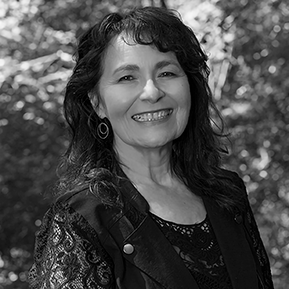I was built by inherited hungers. This is not a poem that names them.
i.
As a body politic we take up space in their ledgers.
Yes, my relatives are the salvage bodies of history.
We have ways they do not approve of.
How we feed ourselves for one:
I have been taught where to find the winter cache of squirrels—
and how to walk away.
As we walk, my brother quiets me:
you cannot tell stories until you visit the places where they make their homes.
Father said the garden song calls the pollinators—
and we must sing in tune.
Nimaamaa said leave some for the spirits and the little people
(and what she meant was we are small in the green frayed body of belonging).
We learn from makwa, from maa’ingan—sometimes, even from Nanaboozhoo.
By this I mean not everything tattered is ruined.
ii.
They believe I was built of equations for gain.
(This poem is not an anthem.)
We still follow picto-spirits,
animal tracks, and seed paths:
Not all of our tools have price tags.
Not all of our safeguards are weapons
You will not find wild game in our lexicon.
Ask yourself—are we the meat they covet?
Copyright © 2024 by Kimberly Blaeser. Originally published in Poem-a-Day on November 22, 2024, by the Academy of American Poets.
“As an Indigenous woman, my writing arises amid legacies of colonization and ongoing efforts to survive the harm caused by attempts to collect Native culture before its supposed ‘inevitable disappearance.’ So the poem begins with this idea of ‘salvage bodies’—the ‘what is left’—but moves on to celebrate [the] practices and teachings Indigenous peoples retain as an other reasonable and admirable way to live. It insinuates that these alternative ways of being may be preferable to the ravages of capitalism. Despite this implied commentary, the poem proceeds largely by story—by retelling small moments from my past, because, of course, the everyday moments carry the important devotions of our families and communities.”
—Kimberly Blaeser

